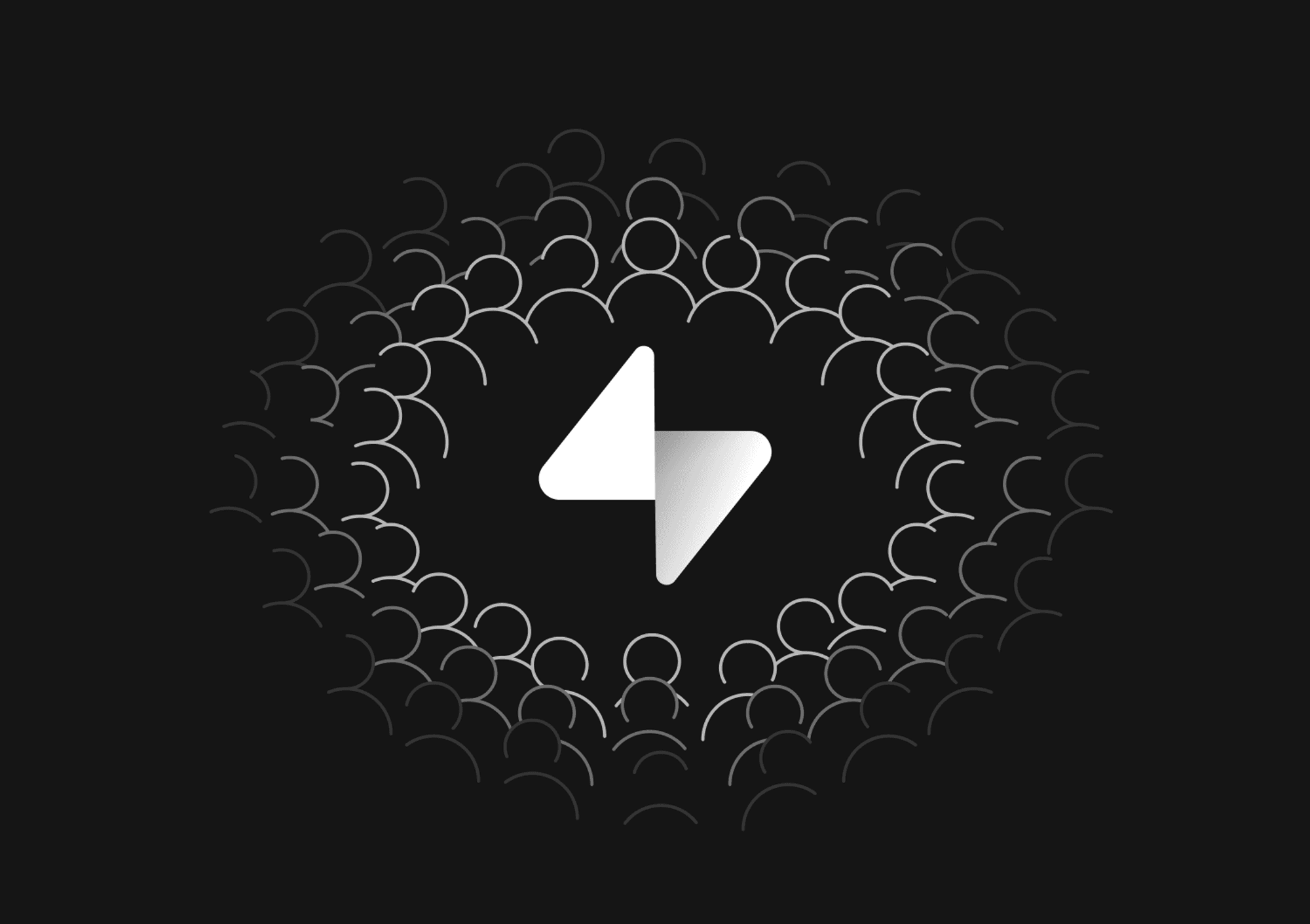
Product analytics tools are failing startups
September 14, 2022
Product analytics tools are failing startups. At an early stage (pre-PMF), aggregate data is a distraction.
The solution? Entity-level data.
Tools like Mixpanel and Amplitude revolve around building reports of aggregated data—things like funnels, retention charts, feature usage breakdowns.
These are obviously useful, but they’re not sufficient.
In fact, they give founders a false sense of “knowing” their users. No matter how many reports you build, you’ll never learn how or why people are actually using your product (or churning from it).
In a perfect world, founders would regularly interview all their users. Obviously, this quickly becomes unscalable. Some level of analytics is necessary.
So, if not aggregate reports, then what?
Session recording tools like Fullstory and Highlight are a big leap forward. Rather than aggregate reports, these tools revolve around real user sessions.
Session recordings expose things that you can’t (or wouldn’t think to) track through analytics events, like a user taking 10 clicks to find a page in your app, or mis-clicking and losing a draft they were working on for 15 minutes.
Our team loves session recordings. In fact, we have a 1-hour meeting every week to watch user sessions as a team.
But they’re still not sufficient. There’s another kind of tool that early-stage startups absolutely NEED to understand their users and reach PMF.
If aggregate reports are like looking down at the world from 30,000 feet, user sessions are like examining a grain of sand under a microscope.
You need something in-between.
Enter, the admin panel.
Admin panels are the perfect level of abstraction because they let you explore real product data in bulk, but not in aggregate.
What does this look like?
- User dashboards
- Company dashboards
- Album dashboards?
The great thing about admin panels is that the core entity they revolve around is the core entity your product revolves around.
Building an ecommerce product? Track products, orders, and deliveries.
Building an issue tracker? Track issues, projects, and cycles.
Building a social network? Track users, groups, and posts.
This is what we’re building at @Basedash. A tool to track and manage the entities that your product is built around.
We’re not an analytics tool, but we solve a lot of the use cases that startups are trying to solve with traditional analytics tools.
How the heck does it work?
First you connect your database. Then you pick the tables that represent your core entities.
That’s it. From there, we’ll generate a shareable interface to explore (and optionally edit) those entities within seconds.
You can optionally enable editing through your database, or connect an API to run actions.
Once you’re happy with your admin panel, you can share it with your team with full control over access.
Want to try it out? You can set up a fully-functional admin panel in about 5 minutes and start sharing it with your team in a couple clicks. Create an admin panel in Basedash in a couple minutes.
You could ship faster.
Imagine the time you'd save if you never had to build another internal tool, write a SQL report, or manage another admin panel again. Basedash is built by internal tool builders, for internal tool builders. Our mission is to change the way developers work, so you can focus on building your product.

TOC
September 14, 2022
Product analytics tools are failing startups. At an early stage (pre-PMF), aggregate data is a distraction.
The solution? Entity-level data.
Tools like Mixpanel and Amplitude revolve around building reports of aggregated data—things like funnels, retention charts, feature usage breakdowns.
These are obviously useful, but they’re not sufficient.
In fact, they give founders a false sense of “knowing” their users. No matter how many reports you build, you’ll never learn how or why people are actually using your product (or churning from it).
In a perfect world, founders would regularly interview all their users. Obviously, this quickly becomes unscalable. Some level of analytics is necessary.
So, if not aggregate reports, then what?
Session recording tools like Fullstory and Highlight are a big leap forward. Rather than aggregate reports, these tools revolve around real user sessions.
Session recordings expose things that you can’t (or wouldn’t think to) track through analytics events, like a user taking 10 clicks to find a page in your app, or mis-clicking and losing a draft they were working on for 15 minutes.
Our team loves session recordings. In fact, we have a 1-hour meeting every week to watch user sessions as a team.
But they’re still not sufficient. There’s another kind of tool that early-stage startups absolutely NEED to understand their users and reach PMF.
If aggregate reports are like looking down at the world from 30,000 feet, user sessions are like examining a grain of sand under a microscope.
You need something in-between.
Enter, the admin panel.
Admin panels are the perfect level of abstraction because they let you explore real product data in bulk, but not in aggregate.
What does this look like?
- User dashboards
- Company dashboards
- Album dashboards?
The great thing about admin panels is that the core entity they revolve around is the core entity your product revolves around.
Building an ecommerce product? Track products, orders, and deliveries.
Building an issue tracker? Track issues, projects, and cycles.
Building a social network? Track users, groups, and posts.
This is what we’re building at @Basedash. A tool to track and manage the entities that your product is built around.
We’re not an analytics tool, but we solve a lot of the use cases that startups are trying to solve with traditional analytics tools.
How the heck does it work?
First you connect your database. Then you pick the tables that represent your core entities.
That’s it. From there, we’ll generate a shareable interface to explore (and optionally edit) those entities within seconds.
You can optionally enable editing through your database, or connect an API to run actions.
Once you’re happy with your admin panel, you can share it with your team with full control over access.
Want to try it out? You can set up a fully-functional admin panel in about 5 minutes and start sharing it with your team in a couple clicks. Create an admin panel in Basedash in a couple minutes.
You could ship faster.
Imagine the time you'd save if you never had to build another internal tool, write a SQL report, or manage another admin panel again. Basedash is built by internal tool builders, for internal tool builders. Our mission is to change the way developers work, so you can focus on building your product.

September 14, 2022
Product analytics tools are failing startups. At an early stage (pre-PMF), aggregate data is a distraction.
The solution? Entity-level data.
Tools like Mixpanel and Amplitude revolve around building reports of aggregated data—things like funnels, retention charts, feature usage breakdowns.
These are obviously useful, but they’re not sufficient.
In fact, they give founders a false sense of “knowing” their users. No matter how many reports you build, you’ll never learn how or why people are actually using your product (or churning from it).
In a perfect world, founders would regularly interview all their users. Obviously, this quickly becomes unscalable. Some level of analytics is necessary.
So, if not aggregate reports, then what?
Session recording tools like Fullstory and Highlight are a big leap forward. Rather than aggregate reports, these tools revolve around real user sessions.
Session recordings expose things that you can’t (or wouldn’t think to) track through analytics events, like a user taking 10 clicks to find a page in your app, or mis-clicking and losing a draft they were working on for 15 minutes.
Our team loves session recordings. In fact, we have a 1-hour meeting every week to watch user sessions as a team.
But they’re still not sufficient. There’s another kind of tool that early-stage startups absolutely NEED to understand their users and reach PMF.
If aggregate reports are like looking down at the world from 30,000 feet, user sessions are like examining a grain of sand under a microscope.
You need something in-between.
Enter, the admin panel.
Admin panels are the perfect level of abstraction because they let you explore real product data in bulk, but not in aggregate.
What does this look like?
- User dashboards
- Company dashboards
- Album dashboards?
The great thing about admin panels is that the core entity they revolve around is the core entity your product revolves around.
Building an ecommerce product? Track products, orders, and deliveries.
Building an issue tracker? Track issues, projects, and cycles.
Building a social network? Track users, groups, and posts.
This is what we’re building at @Basedash. A tool to track and manage the entities that your product is built around.
We’re not an analytics tool, but we solve a lot of the use cases that startups are trying to solve with traditional analytics tools.
How the heck does it work?
First you connect your database. Then you pick the tables that represent your core entities.
That’s it. From there, we’ll generate a shareable interface to explore (and optionally edit) those entities within seconds.
You can optionally enable editing through your database, or connect an API to run actions.
Once you’re happy with your admin panel, you can share it with your team with full control over access.
Want to try it out? You can set up a fully-functional admin panel in about 5 minutes and start sharing it with your team in a couple clicks. Create an admin panel in Basedash in a couple minutes.
You could ship faster.
Imagine the time you'd save if you never had to build another internal tool, write a SQL report, or manage another admin panel again. Basedash is built by internal tool builders, for internal tool builders. Our mission is to change the way developers work, so you can focus on building your product.

What is Basedash?
What is Basedash?
What is Basedash?
Basedash is the admin panel you don't have to build.
Basedash is the admin panel you don't have to build.
Basedash is the admin panel you don't have to build.
Dashboards, charts, API calls, CRUD operations, SQL queries. Just connect your database, Basedash handles the rest.
Dashboards, charts, API calls, CRUD operations, SQL queries. Just connect your database, Basedash handles the rest.
Dashboards, charts, API calls, CRUD operations, SQL queries. Just connect your database, Basedash handles the rest.




Dashboards and charts
Edit data, create records, oversee how your product is running without the need to build or manage custom software.
USER CRM
ADMIN PANEL
SQL COMPOSER WITH AI







